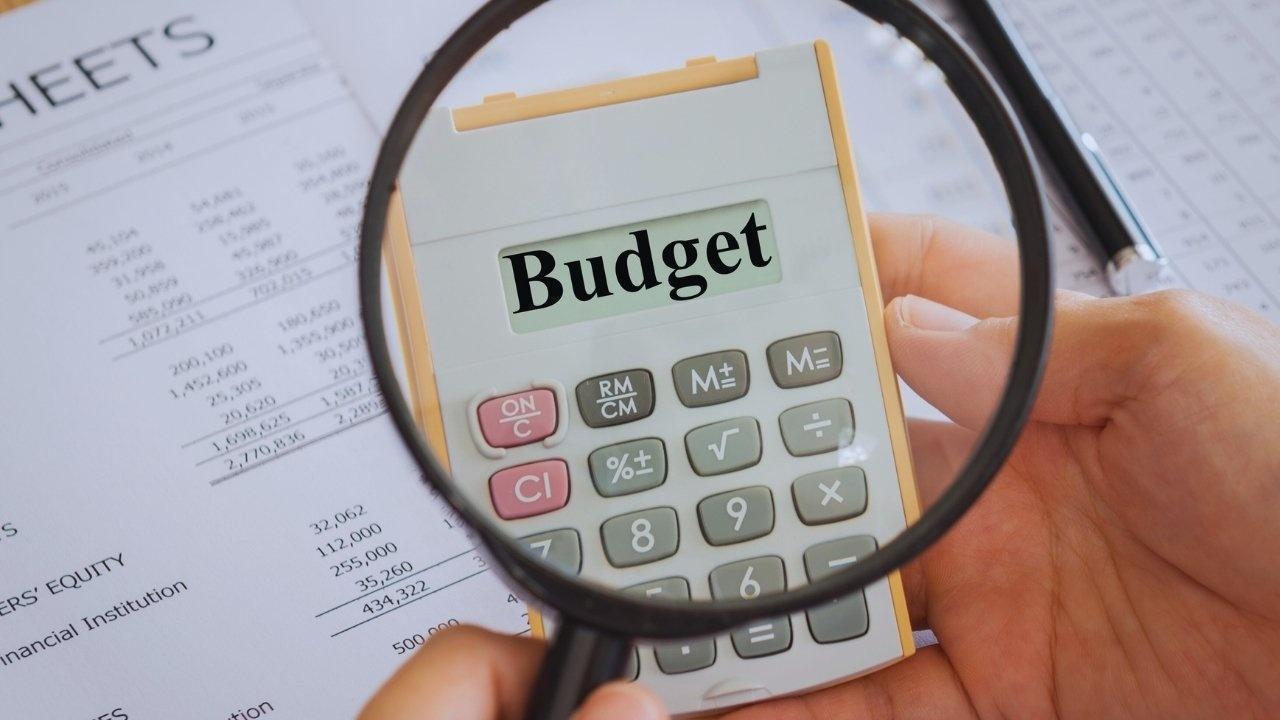You have not yet added any article to your bookmarks!

Join 10k+ people to get notified about new posts, news and tips.
Do not worry we don't spam!

Post by : Anis Farhan
In today's economy, many households grapple with escalating expenses and unpredictable bills, making financial management more challenging than ever. From grocery prices that keep rising to unexpected medical or repair costs, traditional budgeting can quickly become complicated and overwhelming. Often, individuals attempt to stick to a budget for a short time, only to return to their old habits due to tools or methods that aren't user-friendly.
This is where straightforward budgeting tools become invaluable. Instead of complex spreadsheets or apps that demand constant attention, there are practical tools proven to help families keep track of their spending, maintain discipline, and genuinely save money. This guide explores budgeting tools that have been put to the test in real households, emphasizing reliability, simplicity, and effectiveness. Each tool mentioned integrates seamlessly into daily routines, minimizing stress and eliminating the need for advanced financial skills.
If you're searching for a simple way to take charge of your finances, this article outlines effective strategies you can start implementing this week.
Before diving into the successful tools, it’s essential to recognize why many budgeting efforts fail despite best intentions.
Starting a budget with rigid rules that don’t align with your lifestyle can lead to early failures and a sense of defeat.
Even the best budgeting apps can become useless when they require excessive input, leading most people to abandon them after a short time.
Budgets are effective when you can quickly see your spending habits. If tracking is delayed, managing your finances can become overwhelming.
A budgeting system needs to fit into your daily life; if it feels burdensome, it's unlikely to last.
The tools featured below tackle these challenges by prioritizing simplicity, visual feedback, habit formation, and long-term viability.
A time-tested method, the envelope approach remains one of the most straightforward and effective budgeting strategies. It can be utilized with real envelopes filled with cash or through digital categories in a budgeting application.
Designate envelopes for essential spending categories, such as groceries, fuel, daily expenses, healthcare, and dining out.
Set a specific monetary limit for each envelope each month.
Once funds in an envelope are depleted, no further spending occurs in that category until the next budget cycle.
It naturally limits overspending—there's no ambiguity regarding the remaining funds.
Encourages prioritization: if grocery costs exceed the budgeted amount, dining-out funds must remain intact.
Promotes discipline in spending without needing elaborate records.
This system is ideal for families with variable incomes, individuals looking to curb impulsive purchases, and anyone needing clear financial boundaries.
This classic budgeting framework allocates monthly income into three distinct categories:
50% for essentials
30% for lifestyle expenses
20% for savings
It offers a clear structure while allowing flexibility. Essentials are stable, lifestyle expenses allow for adjustments, and savings are treated as non-negotiable items.
Households employing this methodology frequently enhance their ability to manage discretionary spending and meet saving goals, as the rule prevents overly aggressive budgeting.
Utilize a notebook or a basic digital tracker divided into three columns.
Record your expenditures on a weekly basis rather than daily.
Conduct a review at the end of the month to adjust proportions as necessary.
This tool segments spending into weekly caps, which proves especially effective for individuals prone to overspending at the beginning of the month.
Weekly limits provide regular resets.
Simple to manage without complex tracking.
Reduces the anxiety of overspending mid-month.
Determine your total monthly budget.
Divide that sum by four.
Withdraw the designated amount in cash or set a digital limit.
Assess remaining funds weekly.
This system works best for students, working couples, and families whose grocery and lifestyle expenses fluctuate regularly.
Not your traditional complex financial sheet—a simple 15-minute monthly tracker requiring minimal input.
Establish five columns:
Date
Expense Category
Amount Spent
Payment Method
Notes (optional)
Tracks expenditure patterns without overwhelming details.
Helps in pinpointing overspending categories like snacks, subscriptions, or unexpected travel.
Encourages consistent tracking without added complexity.
After a two-month period, most individuals report discovering 2–3 areas where they have unknowingly overspent, and addressing these can lead to substantial savings.
Here, every dollar you earn is allocated a specific purpose, ensuring nothing remains unaccounted.
Assign income towards all necessary, desired, and savings categories until reaching a zero balance.
This method channels funds purposefully rather than allowing random spending.
Prevents wasteful expenditure of leftover funds.
Fosters financial discipline by ensuring every dollar has a designated purpose.
Aids families in prioritizing essentials and savings.
Especially beneficial for households with multiple income sources or shared expenses.
Logs who paid for what.
Balances expenses automatically.
Mitigates disputes or confusion.
This approach alleviates the necessity for mental accounting and simplifies the monthly review process.
Joint families, roommates, or married couples managing shared expenses.
Most families waste resources on overlooked subscriptions. A subscription tracker can help curb this.
An easy sheet or app listing various subscriptions, broadband, gym memberships, and more.
Includes renewal dates and associated costs.
By seeing how much they are spending annually, individuals often cancel unused services quickly.
Impulse buying tends to rise on weekends; using only cash can be a powerful tactic to regain control.
Cash leaving your hands makes expenditures feel real and helps prioritize spending.
Minimizes wasteful spending on outings and takeout.
Assists families in adhering to their lifestyle budget.
Savings can be divided into specific categories:
Emergency
Travel
Education
Home Improvements
Long-term Investments
It enables visibility into your progress towards each goal, promoting consistency and discouraging the temptation to exhaust savings.
Families report better planning for vacations, educational expenses, and health emergencies when money is clearly allocated.
A physical board placed on a wall or refrigerator keeps your budget visible at all times.
A board displaying monthly objectives.
Expenses divided into essential and non-essential categories.
A progress gauge for savings.
Seeing your budget daily makes you less likely to exceed your spending limits.
Families with children, as it fosters awareness and encourages healthy financial habits.
Monthly evaluations can feel overwhelming and often occur too late. Weekly check-ins help you remain on the right track.
Switching methods frequently creates confusion. Commit to a single approach for at least two complete cycles.
Budgets need to reflect your lifestyle, as overly strict restrictions lead to burnout.
Approach savings as a fixed expense—pay it first every month.
This includes high-ticket items like electronics or durable goods, preventing monthly budgets from becoming skewed.
Families gain clarity on where their money is going rather than relying on guesswork.
Effective tracking eliminates the hysteria that often accompanies month-end budgeting.
Even families with limited incomes report noticeable increases in savings within a couple of months.
For shared living situations, transparent expense tracking reduces misunderstandings.
Individuals tend to become more mindful of impulse buys and recurring unnecessary expenditures.
While a single tool may be effective, blending a couple of them can yield a more comprehensive system.
Envelope method + Weekly limit tracker
Zero-balance budgeting + Savings buckets
Spreadsheet + Subscription tracker
Visual budget board + Envelope system
Weekly tracker + Cash-only weekends
These combinations ensure both organization and flexibility.
Select the weekly spend-limit tracker or the envelope method.
Zero-balance budgeting serves best.
Consider utilizing an expense-sharing application alongside a subscription tracker.
Starting off with a simple category tracker is advisable.
The cash-only weekend rule combined with the weekly limit tracker proves to be the most effective.
Budgeting is less about curtailing your lifestyle, and more about enabling your finances to serve you. The tools we've highlighted here are tailored for practical use and everyday scenarios—no complicated calculations or overwhelming dashboards, just straightforward systems that help households save effectively while relieving stress.
Whether you opt for the envelope approach, a weekly spending tracker, bucket-based savings, or subscription monitoring, the essence lies in consistency. Regularly employing one method for even a couple of months can visibly alter spending habits, savings growth, and overall financial clarity.
As costs rise and lifestyles evolve, effective budgeting is essential—more so now than ever. Fortunately, the right tools make this process not only manageable, but genuinely empowering.
This article offers general advice on budgeting for everyday households; individual outcomes may vary based on personal income levels, responsibilities, and financial objectives.










US Security Officials Drive S. Jaishankar 416 Miles During Shutdown
US security drove External Affairs Minister S. Jaishankar 416 miles during a government shutdown to

US Pledges $45M to Strengthen Fragile Thailand-Cambodia Truce
The US will provide $45 million in aid to help stabilize the fragile truce between Thailand and Camb

U.S.-India Trade Deal Falters as Modi Skips Trump Call Says Lutnick
U.S. Commerce Secretary Lutnick reveals India wasn’t ready for a trade deal after PM Modi avoided a

Boosting Northern Luzon Economy: Marcos Jr. Inaugurates Modern Camalaniugan Bridge
President Marcos Jr. opens the ₱2.3B Camalaniugan Bridge, enhancing connectivity, trade, and economi

Trump warns China on Taiwan, says any change would upset him
Donald Trump says Taiwan’s future depends on Xi Jinping but warns he would be unhappy if China tries

Gold Prices Slide as Strong Dollar and Futures Selling Weigh
Gold prices dipped as investors adjusted positions ahead of a commodity index reshuffle, while a str